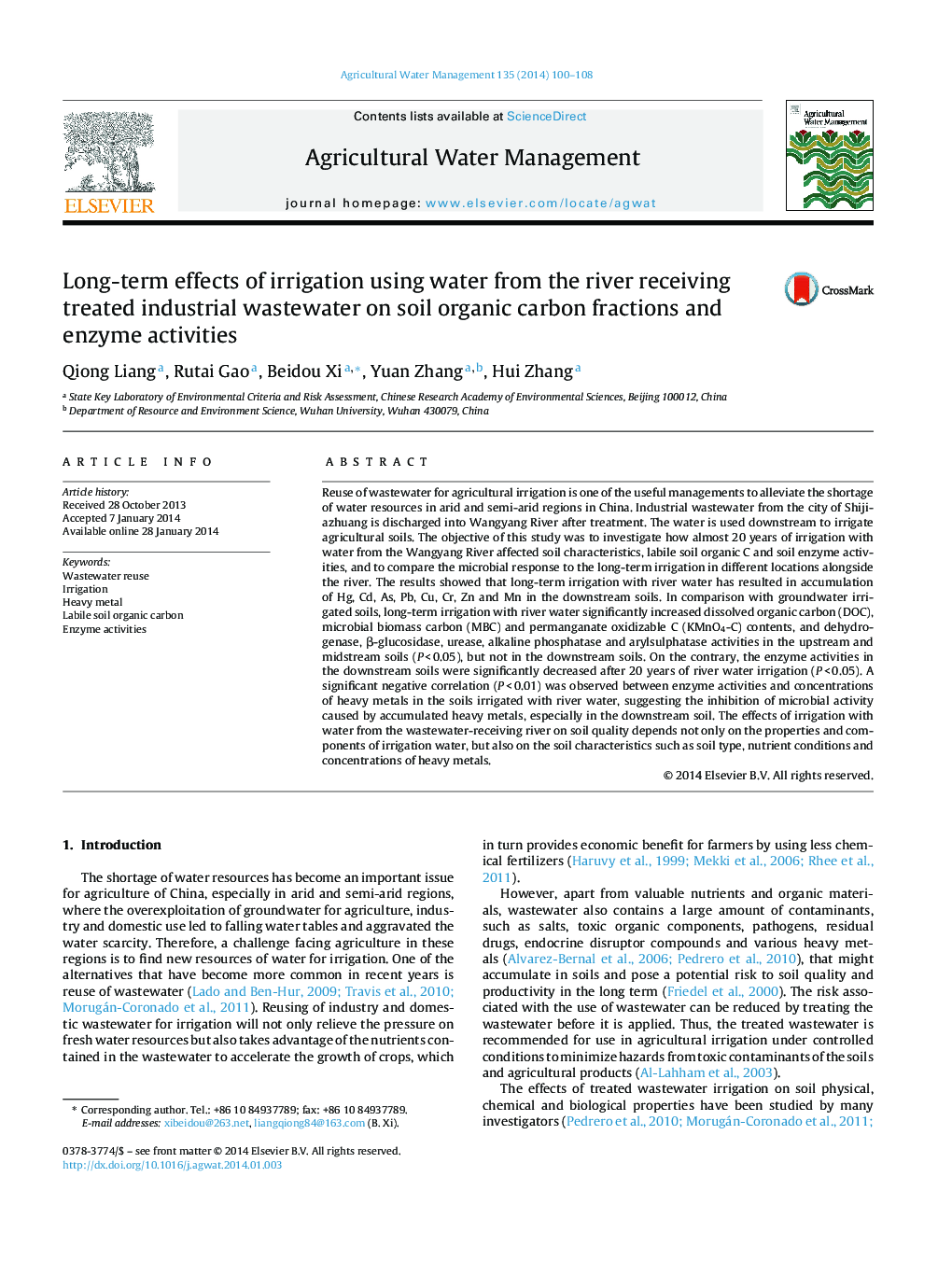| کد مقاله | کد نشریه | سال انتشار | مقاله انگلیسی | نسخه تمام متن |
|---|---|---|---|---|
| 4478737 | 1622944 | 2014 | 9 صفحه PDF | دانلود رایگان |
• We examined changes in soil quality after long-term irrigation with river water.
• Labile organic C fractions and enzyme activities as soil quality indicators.
• River water irrigation resulted in accumulation of heavy metals in downstream soil.
• Irrigation with river water increased microbial activity in up- and midstream soils.
• Microbial activity in downstream soil was inhibited by accumulated heavy metals.
Reuse of wastewater for agricultural irrigation is one of the useful managements to alleviate the shortage of water resources in arid and semi-arid regions in China. Industrial wastewater from the city of Shijiazhuang is discharged into Wangyang River after treatment. The water is used downstream to irrigate agricultural soils. The objective of this study was to investigate how almost 20 years of irrigation with water from the Wangyang River affected soil characteristics, labile soil organic C and soil enzyme activities, and to compare the microbial response to the long-term irrigation in different locations alongside the river. The results showed that long-term irrigation with river water has resulted in accumulation of Hg, Cd, As, Pb, Cu, Cr, Zn and Mn in the downstream soils. In comparison with groundwater irrigated soils, long-term irrigation with river water significantly increased dissolved organic carbon (DOC), microbial biomass carbon (MBC) and permanganate oxidizable C (KMnO4-C) contents, and dehydrogenase, β-glucosidase, urease, alkaline phosphatase and arylsulphatase activities in the upstream and midstream soils (P < 0.05), but not in the downstream soils. On the contrary, the enzyme activities in the downstream soils were significantly decreased after 20 years of river water irrigation (P < 0.05). A significant negative correlation (P < 0.01) was observed between enzyme activities and concentrations of heavy metals in the soils irrigated with river water, suggesting the inhibition of microbial activity caused by accumulated heavy metals, especially in the downstream soil. The effects of irrigation with water from the wastewater-receiving river on soil quality depends not only on the properties and components of irrigation water, but also on the soil characteristics such as soil type, nutrient conditions and concentrations of heavy metals.
Journal: Agricultural Water Management - Volume 135, 31 March 2014, Pages 100–108
